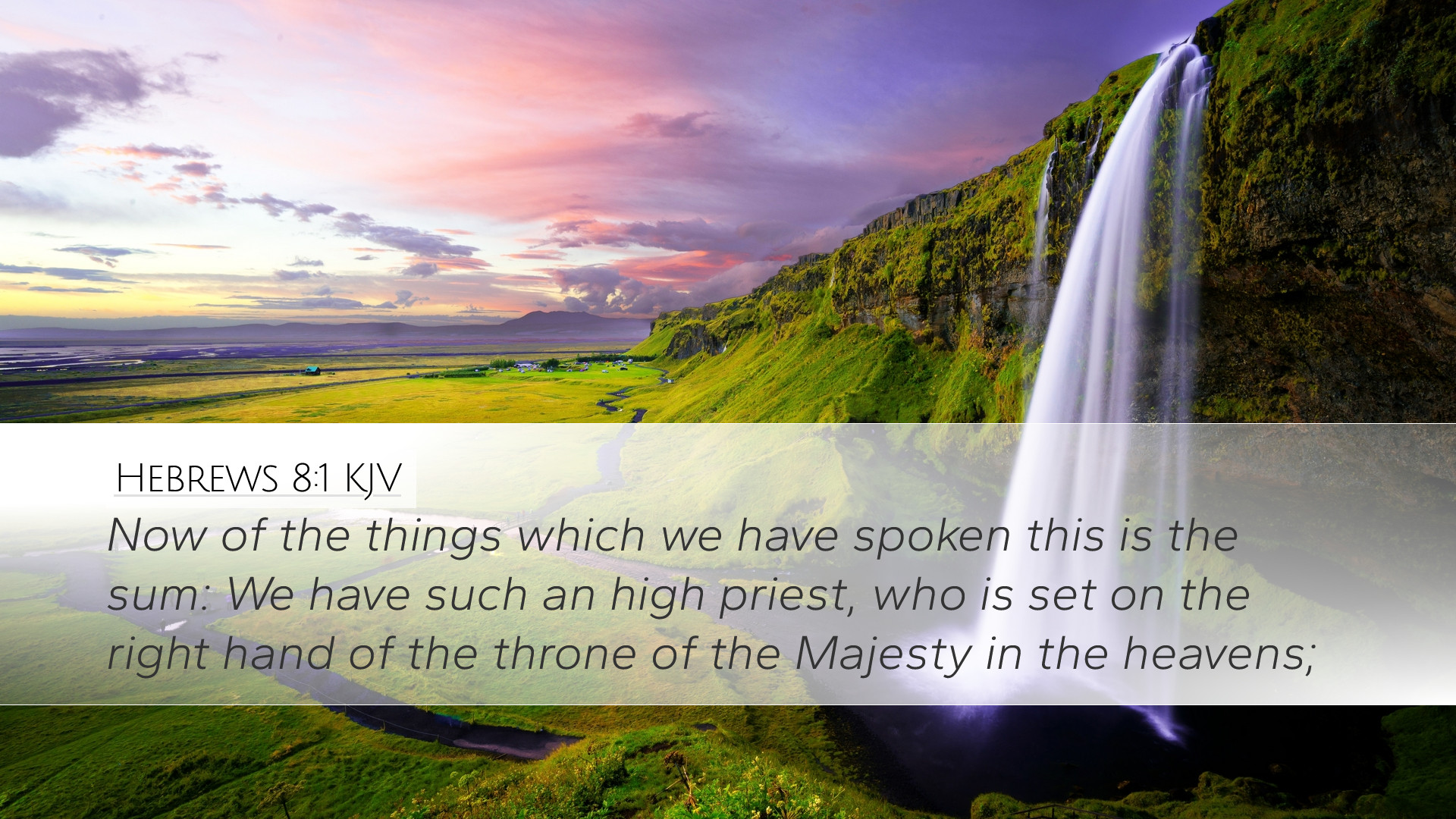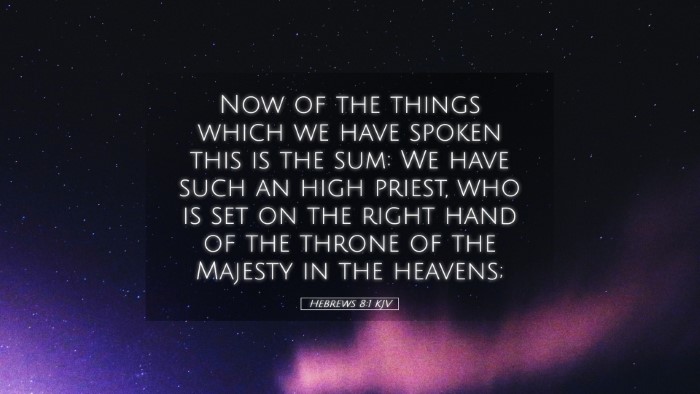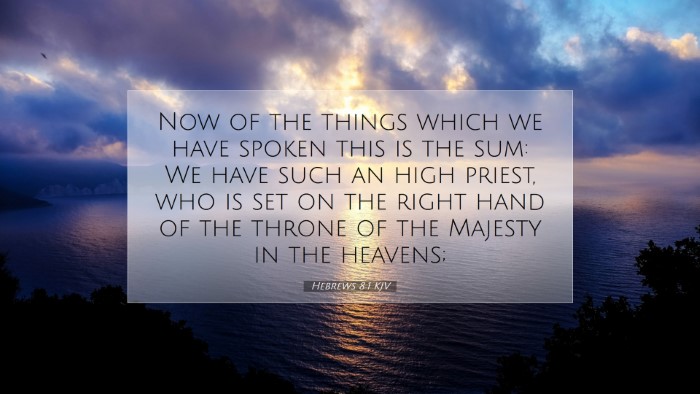Old Testament
Genesis Exodus Leviticus Numbers Deuteronomy Joshua Judges Ruth 1 Samuel 2 Samuel 1 Kings 2 Kings 1 Chronicles 2 Chronicles Ezra Nehemiah Esther Job Psalms Proverbs Ecclesiastes Song of Solomon Isaiah Jeremiah Lamentations Ezekiel Daniel Hosea Joel Amos Obadiah Jonah Micah Nahum Habakkuk Zephaniah Haggai Zechariah MalachiHebrews 8:1
Hebrews 8:1 KJV
Now of the things which we have spoken this is the sum: We have such an high priest, who is set on the right hand of the throne of the Majesty in the heavens;
Hebrews 8:1 Bible Commentary
Commentary on Hebrews 8:1
Hebrews 8:1 (KJV): "Now of the things which we have spoken this is the sum: We have such an high priest, who is set on the right hand of the throne of the Majesty in the heavens."
Introduction
The Book of Hebrews presents a profound theological argument surrounding the supremacy of Christ as our High Priest. This verse encapsulates the essence of the Apostle's argument by affirming the exalted position of Christ in the heavenly realm. It serves as both a conclusion to previous discussions and an introduction to the implications of Christ's priesthood.
Summary of Insights
Various public domain commentaries contribute valuable insights into this verse. The following summaries from Matthew Henry, Albert Barnes, and Adam Clarke provide an enriched understanding of Hebrews 8:1.
Matthew Henry's Commentary
Matthew Henry emphasizes the significance of the High Priest's position. He notes that the phrase "Now this is the sum" signifies the culmination of the previous arguments regarding Christ's divine nature and His priestly role. Henry highlights that:
- The title "High Priest" acknowledges Christ's unique mediatorial role between God and humanity.
- His sitting "on the right hand of the throne" indicates a position of authority and triumph, signifying His completed work of redemption.
- The location "in the heavens" underscores the spiritual nature of Christ's priesthood, contrasting it with the earthly Levitical priesthood.
Albert Barnes' Notes
Albert Barnes provides a critical explanation that delves into the implications of Christ's high priesthood:
- He notes that the term "high priest" signifies a singular role of mediation, which is fulfilled perfectly in Christ due to His sinless nature.
- Barnes elaborates on the significance of Christ being seated at the right hand of God, which suggests His completed work in contrast to the continual sacrifices offered by Levitical priests.
- He points out that the author of Hebrews aims to encourage believers by reminding them of their High Priest’s intercessory role, thus affirming their faith and hope in Christ's atoning work.
Adam Clarke's Commentary
Adam Clarke integrates historical and theological perspectives to deepen the understanding of this verse. His commentary reflects on several key aspects:
- Clarke notes that the "sum" here can be viewed as a summary of the high priestly duties performed by Christ, in contrast to the insufficient rituals of the old covenant.
- He emphasizes the importance of the phrase "right hand of the throne," using it to illustrate the exaltation and honor bestowed upon Christ after His resurrection.
- Clarke discusses the significance of "Majesty in the heavens," interpreting it as a representation of God's sovereign power and the ultimate authority of Christ in the context of divine worship.
Theological Implications
Hebrews 8:1 touches upon several foundational theological implications that resonate deeply with believers:
- Christology: This verse underscores the essential tenet of Christ's divine sonship and His role as the ultimate High Priest.
- Salvation and Atonement: The completion of Christ’s priestly work offers profound assurance of salvation, which is no longer dependent on repetitive sacrifices.
- Encouragement for Believers: The exalted position of Christ as High Priest serves as a source of hope and encouragement for Christians facing trials and tribulations, reinforcing the belief in His intercessory power.
Conclusion
Hebrews 8:1 serves as a crucial focal point in understanding the supremacy of Christ and His priestly ministry. The insights from Matthew Henry, Albert Barnes, and Adam Clarke collectively enrich our comprehension of the verse's theological significance, aiding pastors, students, and scholars in their exploration of the Christian faith. The assertion of Christ sitting at the right hand of the throne of the Majesty highlights His authority and the perfect completion of His redemptive work, inviting believers to rest in His sovereign grace and intercession.


